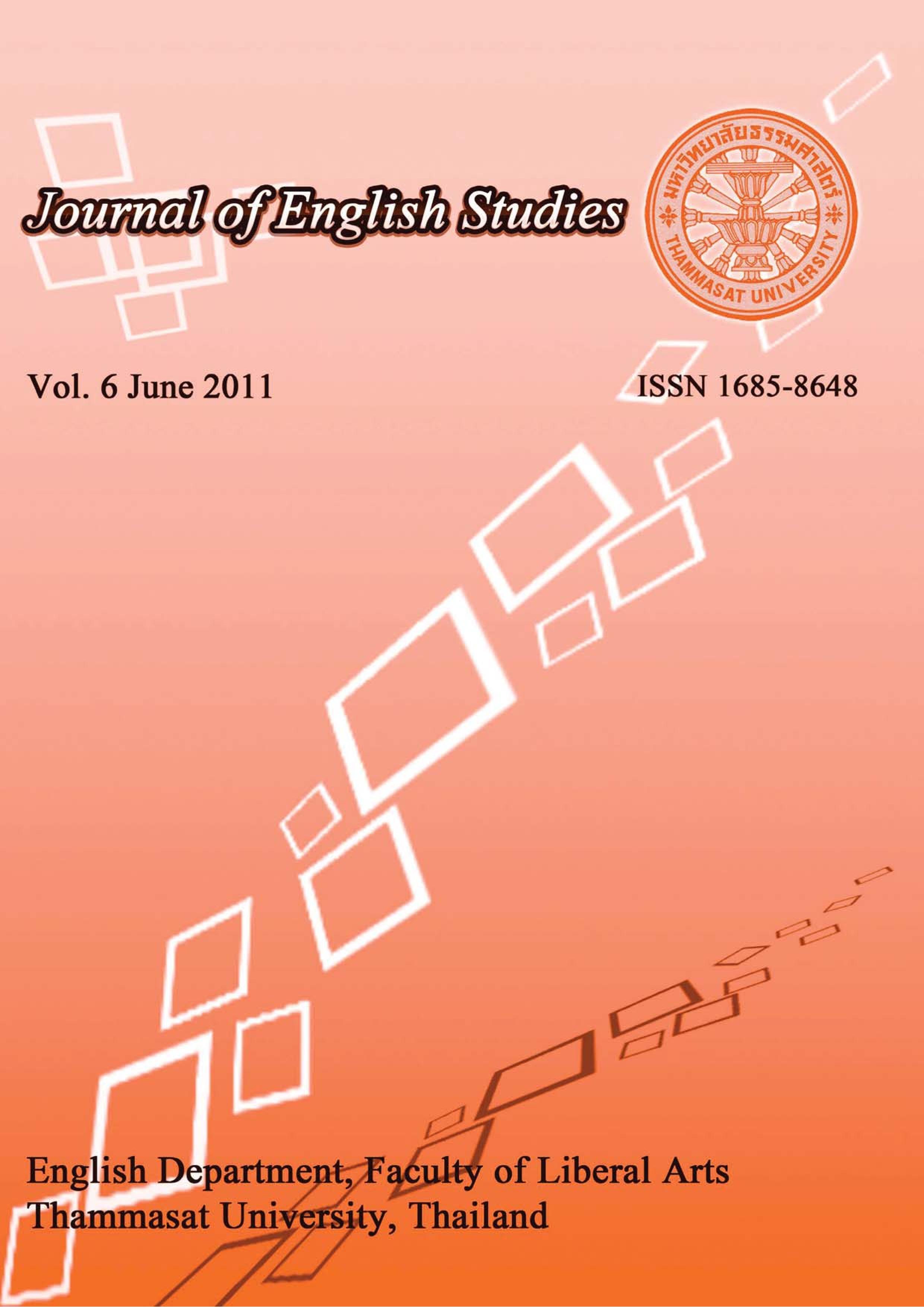Corpora and Emerging Technology for ELT
Main Article Content
Abstract
The use of corpora can contribute to language learning in both implicit and explicit ways. Corpora have been introduced in language teaching as another approach to teaching language. Data-driven learning views language learning as a kind of research process in which students are expected to discover the knowledge themselves. In Thailand, though corpora are not widely used in ELT, in many universities corpus-based research, such as move analysis on academic writing, experiments on the use of concordance and corpora in ELT, the creation of Thai learner English corpora, errors and performance analysis of Thai learners on prepositions and collocations is now active. The use of concordance and corpora is an example of how current technology can be applied to ELT. Other innovations, such as Blogs, Youtube, Facebook, Skype, and smart phones, have also been studied to explore their use in ELT. With the rapid growth of technology, language learning is no longer restricted to the same old learning environment. It is our duty as teachers to help strengthen students' linguistic
ability by seeking and adapting new innovations for language learning.
Keywords: Corpora, ELT, emerging technology

